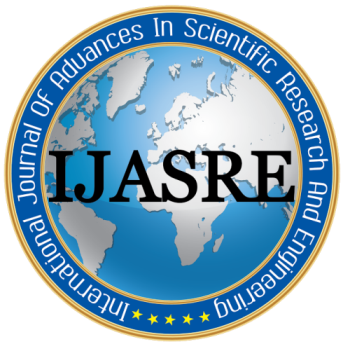E-Formation Policy in Developing the Need for Civil Servants in the Probolinggo Regency of Indonesia
DOI:
https://doi.org/10.31695/IJASRE.2022.8.8.4Keywords:
Government Policy, E-Formation, Leadership SupportAbstract
Based on the regulations, the preparation of employee needs is carried out using an electronic application. E-Formation from the rationale to speed up the administrative process and ensure the accuracy of data related to job maps, number of employees, employee placement positions, allocation of shortages and excess employees. In preparing formation requirements, civil servants in every Ministry, State Institution and Government Agency, both central and local, are required to use this system, and the deadline for completing the e-formation is according to the schedule determined by the centre. This study aims to describe: the implementation of civil servant formation through e-formation in the Probolinggo Regency and the supporting and inhibiting factors with the implementation of civil servant formation through e-formation in the Probolinggo Regency. This study uses a qualitative approach with a descriptive type. The results of the study show: The Probolinggo Regency Government has implemented a Government policy that prepares civil servant formation requirements using an e-formation application based on job maps, job analysis and workload analysis contained in the regent's Regulation. However, with the simplification of the bureaucracy and the equalization of structural positions to available positions, the Probolinggo Regency Government should re-evaluate the Regent's Regulation; and In carrying out the preparation of civil servant formation needs, it is necessary to have support from the leadership in Probolinggo Regency to overcome inhibiting factors such as budget allocation, increasing the competence of formation builders, mutation/transfer of employees and delegation of tasks/responsibilities.
References
. Rasyid, MR, 2009. Policies for the Preparation of Professional Apparatus Resources in Implementing Regional Autonomy. Editors Andy Ramses M. and La Bakry. 2009. Local Government in Indonesia. Indonesian Society of Sciences (MIPI). Jakarta.
. Tjokromidjojo, B., 1995b. Development Planning. PT. Holy mountain. Jakarta.
. Faris Ridho. Hardi Warsono. Djumiarti point. 2013. Formation Planning Employee at the Regional Office of the National Land Agency of Central Java Province, Department of Public Administration, Faculty of Social and Political Sciences, Diponegoro University.
. Riyadi and DS Bratakusumah, 2004. Regional Development Planning: Strategically Exploring Potential in Realizing Regional Autonomy. PT. Main Library Gramedia. Jakarta.
. Kartasasmita, G., 1997. Administration of Development of Thought Development and Practice in Indonesia. Indonesian LP3ES library. Jakarta
. Thoha, M., 2010. Civil Service Management in Indonesia. Kencana Prenada Media Group. Jakarta.
. Siagian, SP, 2012b. Human Resource Management. Earth Literature. Jakarta.
. Kuncoro, M., 2012. Regional Planning: How to Build the Local Economy, Cities and Regions. Salemba Empat Publisher. Jakarta.
. Nafi, M. and Supriadi B., (2017), ‘Strategies of Tourism. Development through cotourism Spectrum for Increasing Tourists’ Visit’, in Rural Resarch and Palanning Group and Palanning Group, pp. 75–85.
. Suswati, M., & Widjajani, R. (2022). Retribution for Public Passenger Transport Route Permits in Pasuruan Regency , Indonesia. EAS Journal of Humanities and Cultural Studies, 0958(4), 161–173. https://doi.org/10.36349/easjhcs.2022.v04i04.002
Downloads
How to Cite
Issue
Section
License
Copyright (c) 2022 Dewi Handayani, Kridawati Sadhana, Wahyu Wiyani

This work is licensed under a Creative Commons Attribution-NonCommercial 4.0 International License.








